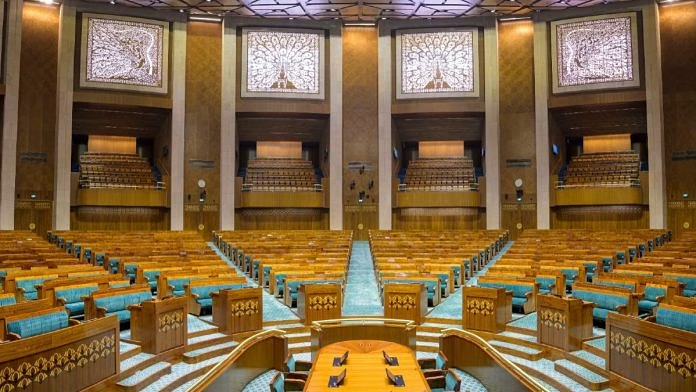A bedrock for democracy, the Parliament keeps the country, which is a diverse one such as ours, alive and thriving despite various hurdles. But have you ever wondered what these elected people do in parliament? Who is an ideal parliamentarian, and why is it necessary for us to know about this day? Let’s delve into it. We recently had our 18th Lok Sabha elections. Where a win felt like a loss, a loss felt like a win, and the Election Commission is finally relieved to have zero allegations. This defines “to the people, for the people, and by the people”! Moments like these showcase why the world’s biggest democracy is different from others. However, there are many contemporary issues that we should not ignore while celebrating such wins. Issues like corruption, unemployment, climate change, and gender inequality. We are present in the 20th century, yet the majority of those elected are 3–4 generations before us. How can we expect such older generations to understand contemporary India?
Similarly, the lack of women in our Parliament is astounding. While certainly there has been slow but steady growth in women MPs and MLAs since the 9th Lok Sabha and Rajya Sabha, as follows: Rajya Sabha: 1989-1991: 5.5%; 1992-1993: 4.7%; 1993-1994: 5.1%; 1994-1995: 5.4%; 1996-1997: 6.2%
Now the issue here can be the current delimitation process, which will be happening soon. For now, the seats for both the upper house and lower house are allotted according to population. For example, UP has the highest count for seat allocation since it's ranked no. 1 in population with a staggering amount of 40 seats. On the other hand, a state like Himachal Pradesh has only two seats. For many years now, the state has been promoting family planning due to the increasing population, which has been successfully implemented in highly educated states such as Kerala, Tamil Nadu, etc. However, their representation in Parliament is getting less and less, which lies in the common belief of North favoritism in the southern and western parts of India. Hence, it's also necessary for the state to act upon such a process. Certainly, it will be a tedious task, and the continuity may lead to regional imbalance.
One might ask: Who might be the ideal parliamentarian? There is no simple answer to this question. Rather than asking who can be an ideal parliamentarian, we should focus on how we can help to constitute a better parliament where diversity and democracy can thrive at their best. It won't always be the case that we'd have good politicians. But what we certainly know is that while it's shocking for the politician of Hassan Constituency to still gain votes, we should still appreciate that there will always be tens and hundreds of other parliamentarians who will always be in favor of development, equality, and, most importantly, for India.
- Rajashree Bhide






No comments:
Post a Comment